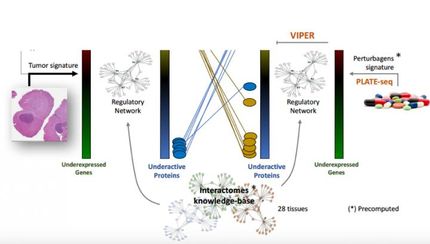Important clue to understanding the pathogenesis of ciliary disorders
Scientists led by Dr. Heiko Lickert, research group leader at the Institute of Stem Cell Research of Helmholtz Zentrum München, have identified the first gene shown to regulate cilia disassembly in a living organism. If the gene is defective, double and forked cilia develop – thus the name Pitchfork. The consequences of the mutation include typical defects in the left-right asymmetry of body organs and heart failure.
The functional investigations were conducted primarily on the mouse model, together with the Institute of Developmental Genetics and the Department of Protein Analytics of Helmholtz Zentrum München. However, Dr. Lickert and his collaboration partner Nicolas Katsanis of Duke University in the U.S. were also able to show mutations in the Pitchfork gene in patients with ciliary diseases. In humans, the substitution of merely one amino acid in the Pitchfork protein can lead to an inversed position of all internal organs (situs inversus), to kidney and liver diseases, but also to severe heart defects. "Our study" Dr. Lickert said, "provides a new entry point to understand and categorize ciliary disease."
Original publication: Kinzel D. et al.; "Pitchfork regulates primary cilia disassembly and left-right asymmetry"; Developmental Cell 2010
Most read news
Topics
Organizations
Other news from the department science

Get the life science industry in your inbox
By submitting this form you agree that LUMITOS AG will send you the newsletter(s) selected above by email. Your data will not be passed on to third parties. Your data will be stored and processed in accordance with our data protection regulations. LUMITOS may contact you by email for the purpose of advertising or market and opinion surveys. You can revoke your consent at any time without giving reasons to LUMITOS AG, Ernst-Augustin-Str. 2, 12489 Berlin, Germany or by e-mail at revoke@lumitos.com with effect for the future. In addition, each email contains a link to unsubscribe from the corresponding newsletter.


















































